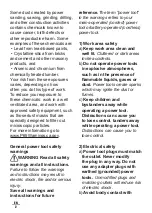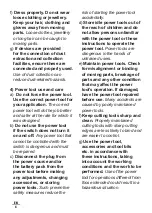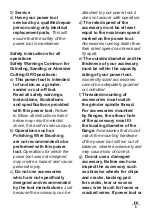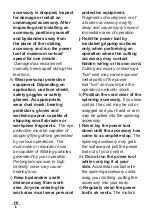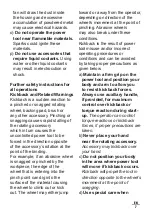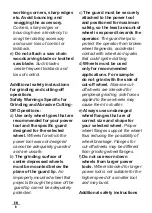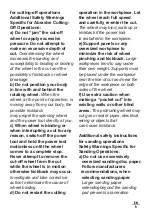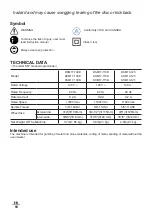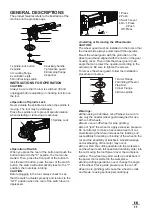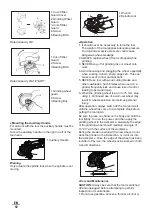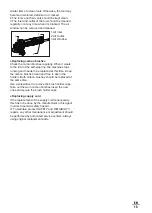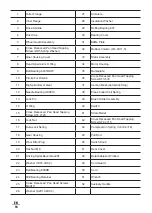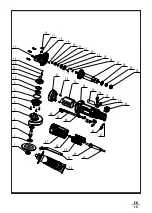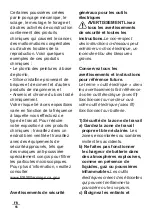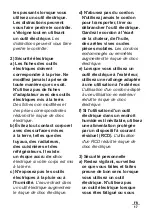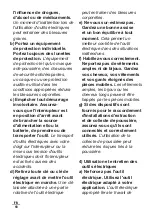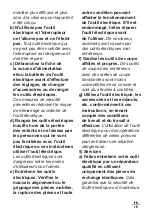
6
EN
accessory is dropped, inspect
for damage or install an
undamaged accessory. After
inspecting and installing an
accessory, position yourself
and bystanders away from
the plane of the rotating
accessory and run the power
tool at maximum no-load
speed for one minute.
Damaged accessories will
normally break apart during this
test time.
h)
Wear personal protective
equipment. Depending on
application, use face shield,
safety goggles or safety
glasses. As appropriate,
wear dust mask, hearing
protectors, gloves and
workshop apron capable of
stopping small abrasive or
workpiece fragments.
The eye
protection must be capable of
stopping flying debris generated
by various operations . The
dust mask or respirator must
be capable of filtrating particles
generated by your operation.
Prolonged exposure to high
intensity noise may cause
hearing loss.
i)
Keep bystanders a safe
distance away from work
area. Anyone entering the
work area must wear personal
protective equipment.
Fragments of workpiece or of
a broken accessory may fly
away and cause injury beyond
immediate area of operation.
j)
Hold the power tool by
insulated gripping surfaces
only, when performing an
operation where the cutting
accessory may contact
hidden wiring or its own cord.
Cutting accessory contacting a
"live" wire may make exposed
metal parts of the power
tool "live" and could give the
operator an electric shock.
k)
Position the cord clear of the
spinning accessory.
If you lose
control, the cord may be cut or
snagged and your hand or arm
may be pulled into the spinning
accessory.
l)
Never lay the power tool
down until the accessory has
come to a complete stop.
The
spinning accessory may grab
the surface and pull the power
tool out of your control.
m)
Do not run the power tool
while carrying it at your
side.
Accidental contact with
the spinning accessory could
snag your clothing, pulling the
accessory into your body.
n)
Regularly clean the power
tool’s air vents.
The motor’s


